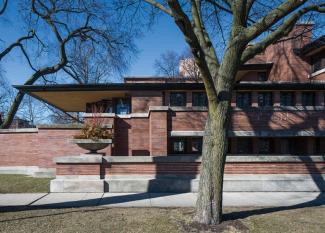Academic Mission
The PhD Program in Philosophy offers an intensive course of study in preparation for a career as a scholar and teacher of philosophy. The program in particular consists of four major components. (1) Completing coursework in the three main areas of contemporary philosophy and in the history of philosophy. (2) Participating in a paper revision workshop, in which students significantly revise an essay originally written for a seminar in consultation with faculty and other students. (3) Defining an intellectual project and writing the PhD dissertation under the direction of a faculty committee. (4) Teaching as assistants in faculty-taught lecture courses and then as lecturers in stand-alone tutorials and small courses. In addition to these major components, students and faculty also participate in a variety of workshops and reading groups in which students present their own work for criticism by their peers and faculty. Throughout the PhD program, students and faculty join together in a continuous, rich philosophical dialogue. And faculty also support that dialogue and students’ intellectual work through advising, mentoring, ongoing academic evaluations, and canny career advice.
Note: The PhD Program in Philosophy is the only graduate program to which the Department of Philosophy admits students; those students interested in a masters degree can apply directly to the Masters of Arts Program in the Humanities (MAPH). This is a standalone program in the Division of Arts & Humanities within which students can take a number of graduate courses in philosophy. Elsewhere on this site we have a more thorough explanation of how our faculty interests serve our MAPH students.
Culture of the PhD Program
The PhD Program in Philosophy is intellectually inclusive, capacious in its research and teaching interests, and unusual in the extent and depth of the collective engagement with both the analytic and continental traditions. All programs now promote their interdisciplinarity, but we’ve been enjoying our wide range of philosophical interests for decades here at Chicago—thanks in part to the thorough integration of the interdisciplinary Council of Advanced Studies workshops into the PhD program and also to departmental colloquia, in which departmental and visiting faculty speak (and are challenged) on various philosophical issues. The department hums with free-flowing philosophical discussions among students and faculty occurring in seminars, workshops, colloquia, the hallways of Stuart Hall, and the Friday afternoon coffee hours in our Anscombe Library.
Socially, the department also tries to make sure that every student’s voice is heard in the running and shaping of the department and its PhD program. There are always two elected graduate student representatives who help keep channels of communication open and flowing in both directions between the departmental faculty and graduate student body, and faculty meet with students regularly about issues of concern. The department also has a faculty diversity liaison; a Diversity, Inclusivity, Climate, and Equity (DICE) Committee composed of departmental faculty and graduate students; and a graduate student outreach coordinator. We all work to ensure that the PhD program, courses, and the departmental culture feel welcome to students from all backgrounds. Here is more information on DICE.
The Women in Philosophy (WIP) group organizes bi-quarterly social gatherings for graduate women in the department. Gatherings typically consist of dinners or brunches hosted at the home of one of our members. While the primary purpose of these gatherings has typically been that of socializing, they are also a space in which people should feel free to raise and discuss any issues pertaining to life in the department. These social events build solidarity and community for the women in our department, and in general there is a high level of cooperation and collaboration between graduate women in the department. Here is more information on WIP.
The University of Chicago is situated in the heart of the South Side of Chicago, one of the country’s most culturally and intellectually rich cities. Life in Chicago is itself also inclusive: it’s a diverse, vibrant city with many social possibilities and livable—and strikingly affordable!—neighborhoods for students.

